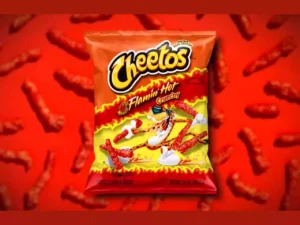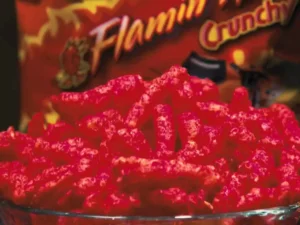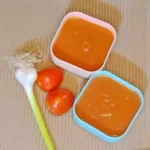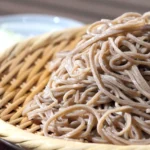A review of 281 studies from 36 different countries published in BMJ has revealed that processed foods with lots of sugar and fat are as addictive as alcohol and nicotine. And up to 1 in 7 adults and 1 in 8 kids struggle with this food addiction, linked to brain changes and health issues.
Where do your Takis fall, then?
Takis are also as addictive as real drugs because they’re a perfect combination of fine carbs, fats, flavors, texture and color, fitting the definition of ultra-processed foods (UPFs). Ultra-processed foods have been shown to have an addictive effect on consumers by triggering dopamine release artificially whenever you eat them.
Processed food manufacturers create such combos to make their food hard to resist to increase their sales.
The result is that you may wonder if your favorite snack is really addictive.
The answer is yes, and you may have become addicted to it if you find any 2 symptoms in your behavior towards your snack, according to YFAS (Yale Food Addiction Scale).
Today’s article takes a closer look at reasons why Takis become addictive and how you can keep yourself from munching the crunchy fire without noticing it.
Let’s get closer to a healthy, happy life.
What are Takis?
Takis are fiery, hyper-palatable, ultra-processed snacks.
These tortilla rolls are made using corn masa flour (carbs) and then fried in oil like palm or canola oil (unhealthy oil). At last, they’re heavily seasoned to add the most tempting flavors.
Takis have all the qualities of the most addictive processed food: carb+fats, flavors (sour, salty, spicy), and crunchy texture.
Their ingredients list includes artificial colors, flavorings, and additives that most kitchens wouldn’t recognize.
Takis’ 51% of calories come from sugar (refined carbs) and the rest from fats.
Additionally, they pack a higher amount of sodium: 420 mg sodium in a single serving of 28 grams.
Why are Takis So Addicting?
Takis are those fiery little tornados of flavor that twist your taste buds and leave you reaching for more.
But what about these intense chips that make them so darn addictive?
Let’s crack open the bag and explore the secrets within:
1. Sugar and Fat
Ultra processed foods often pack a punch of sugar and fat.
The combination of fat and sugar triggers extracellular dopamine (the intense pleasure) in the brain as alcohol or nicotine do.
The result is the addiction that can be traced to behavioral changes like “excessive intake, loss of control over consumption, intense cravings, and continued use despite negative consequences.“
Takis wins here.
Just fitting the definition of ultra-processed foods,
made mostly from substances extracted from foods, such as fats, starches, added sugars, and hydrogenated fats
health.harvard.edu
Takis do their job–make you addicted to spicy crunch and their vibrant color.
2. Hyper Palatability and Crunch
Takis fall under the category of hyper-palatable foods, described as:
…rewarding to eat and harder to stop consuming.
KU scientist Tera Fazzino
These foods have fats, carbs, salt, and sugar in a certain ratio but the least nutrients, which makes them palatable.
Animal study shows that hyper-palatable foods (HPFs) trick your brain by lighting up reward centers (dopamine) artificially.
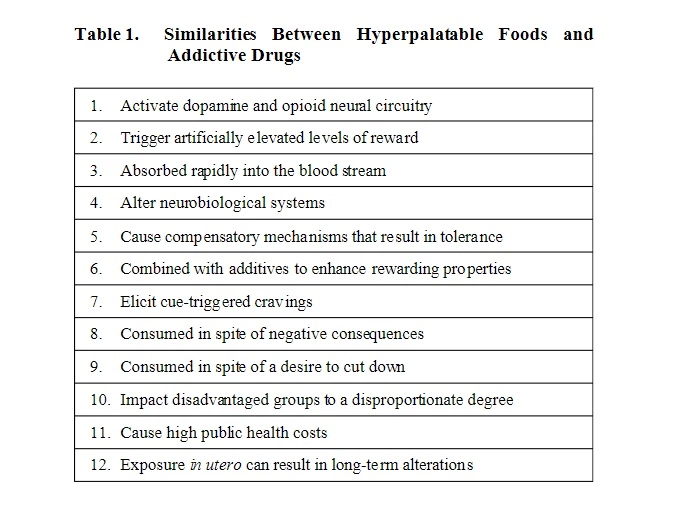
Withdrawal attempts also cause symptoms similar to traditional drugs.
Takis’ hyper-palatability, a fancy way of saying “intensely pleasing taste,” hooks you with a triple punch of flavor, spice, and texture.
The artificial additives create a burst of sweetness, while chili peppers deliver a fiery kick.
The rough, crunchy texture keeps your mouth wanting more, like a flavor roller coaster.
This combination of taste sensations triggers the brain’s reward system, making you crave that next fiery chip, leading to the addictive nature of Takis.
3. The Color of Danger
Vivid food color triggers the brain’s reward system, similar to drugs. You crave intense sensations, and bright hues that amplify the flavor. This powerful combination fuels overconsumption and potential addiction.
Takis aren’t shy about their fiery nature.
The vibrant red or surprising blue, seeming cool but still spicy hue, screams excitement, danger, and a hint of forbidden pleasure.
It’s a visual cue that triggers your brain’s reward system, making you want to unlock the spicy treasure within.
So
There you have it, the 3 reasons why Takis are the ultimate addictive snack.
They’re a flavor fiesta, a textural thrill ride, and a social siren song, all wrapped up in a fiery red package.
Just be warned, once you open another bag, maybe Takis have trapped you… It’s time to escape…!
How Can You Prevent Yourself from Takis Addiction?
If Takis have become irresistible for you, a few tips can help you munch them mindfully.
Know Your Trigger
What makes you grab a bag?
Boredom, stress, or after-school cravings? Identify your cue and have a healthier backup ready, like a juicy apple or crunchy veggie sticks.
Small Steps, Big Wins
Don’t go cold turkey!
Start by cutting back slowly. Skip one serving a day, then two, until you’ve found a comfortable pace. Remember, progress, not perfection, is key!
Swap the Sizzle
Find other snacks that hit the spot!
Spicy chickpeas, chili roasted pumpkin seeds, or homemade salsa with whole-wheat chips can curb your craving without the sugar and fat overload.
Hydration Hero
Sometimes, thirst disguises itself as hunger.
Keep a cool glass of water or refreshing herbal tea handy. You might be surprised how easily thirst melts away Takis’ craving.
Mindful Munching: Savor your snacks! Slow down, chew thoroughly, and appreciate the flavors. This mindful approach helps you control portions and prevents mindless munching.
Stock Smart
Don’t keep temptation in the house!
If Takis are readily available, they’ll call your name. Opt for healthier alternatives and keep the fiery friend for occasional visits.
Get Creative
Explore the kitchen!
Whip up a healthy chili for that spicy kick, or bake sweet potato fries for a satisfying crunch. Cooking gives you control over ingredients and opens up a world of delicious possibilities.
Support System
Share your journey!
Talk to friends, family, or a nutritionist for encouragement and accountability. Having someone on your side makes the path to healthier habits smoother.
Remember, breaking any habit takes time and effort. Be patient with yourself, celebrate small victories, and, most importantly, have fun exploring new and delicious ways to snack!
You’ve got this, fiery friend!
Disclaimer
This information is for educational purposes only and doesn’t replace professional medical advice. Consult a doctor for any health concerns, personalized diagnosis and treatment.
